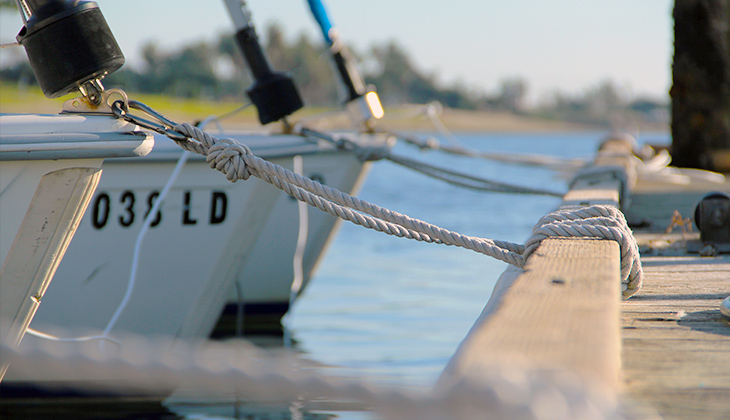How to CHECK your boat insurance, really protects you!
Tessa Biles, 1st February 2018, Boat
This month we had the pleasure of speaking to Molly Matthews a Leisure Insurance Administrator for Compare Boat Insurance, Insure My Boat, and of course CETA Insurance. We asked her about the most common mistakes made by boat owners when they are looking for an insurance policy.

Every year hundreds of people attempt to make a claim on their boat insurance only to find they are turned away by their provider due to having inadequate cover. It's everyone's nightmare scenario. So, we spoke to Molly to find out how boat owners can protect themselves and ensure they are getting insurance policies that meet their needs.
Molly's Top Ten Tips!
Tip 1: Mooring Terms
Many people do not read their documentation but it is vital that you do, particularly if you buy online. Your documentation will tell you about the policy's mooring terms along with other important information.
It is vital that you read your policy documentation!
For example upon reading your documentation you may realise that you only have six-months mooring cover. This means that if you keep your vessel on a mooring, it's 50/50 whether your claim will be valid!
Tip 2: Personal Accident Cover
Check if your insurance includes Personal Accident Cover (PAC), and in particular what level of cover it is, as this will vary between each provider. It can be anything from a fatality to any accidental injury sustained whilst on-board. Some providers offer PAC for up to £20,000, and this can be for you or anyone on-board your vessel who isn't employed to work on the boat.
So check your policy, and find out exactly what your covered for.
"Many people don't even realise that Personal Accident Cover can be included with boat insurance policies!"
Tip 3: Check the security requirements
Insurance claims can be invalid if you do not adhere to the policy's security requirements. For example, if you plan on towing your boat most providers require you to have either a hitch lock or a wheel clamp for your trailer. So make sure you are staying compliant!
Tip 4: Outboard Motor
Similar to tip 3, check the security requirements of the policy if you have an outboard motor. It is common practise for policies to have a clause stating that you must have an outboard motor lock, which you use when the boat is not in use. If you do not follow these guidelines your policy can become invalid.
Tip 5: Boat in transit conditions
Certain providers will not offer cover for boats in transit, i.e. boats being towed. Therefore, if you plan on towing your boat you MUST make sure your policy will cover you.
If you plan or towing your boat you MUST make sure your policy will cover you.
Check there aren't any transit conditions, such as the length of the boat you are covered to tow, or the distance of which you can travel whilst towing. All of these should be found in your documentation.
Tip 6: Salvage charges and wreck removal
If you were ever in the unfortunate position of claiming on your insurance due to your boat sinking, the last thing you want to hear is that your claim has been denied due to lack of evidence. If your policy includes a salvage and wreck removal clause, this means that you are covered for someone to remove your boat from wherever it has sunk. Allowing you to provide the evidence necessary to your provider, and receive the value to which your boat is insured.
Tip 7: Cruising range
It is vital that you are aware of your insurance policies cruising range, so you don't sail somewhere that doesn't cover you. If for example you have cover to sail anywhere within England but you want to sail to France for a Summer holiday, I would advise you to call your insurance provider, as you can normally adjust the cover to make sure you have the protection you need.
Whatever you do DON'T RISK GOING UNINSURED.
Tip 8: Insuring for more
If you managed to get your vessel for a bargain price, but it is in fact worth a lot more, you'll want to get insurance for the amount your boat is worth.
You'll need evidence of the true value of your boat.
Therefore, if you want a policy with full cover, you'll need evidence of the true value of your boat. You can do this by getting a valuation from a professional marine surveyor.
We recommend you do this before getting any quotes, as it is unlikely you'll be able to get cover unless you have this figure and the evidence required.
Tip 9: Pricing breakdown
If you bought your boat as part of a bundle sale e.g. you purchased a boat, trailer and outboard, you must know the pricing breakdown per item. This is because each item must be insured separately in the event that you need to claim for one individual item.
Tip 10: Get your documents ready
When it comes to getting insurance, have all your vessels paperwork in front of you, as you will need to know key information. Such as, the model of your boat, the make, and the serial number.